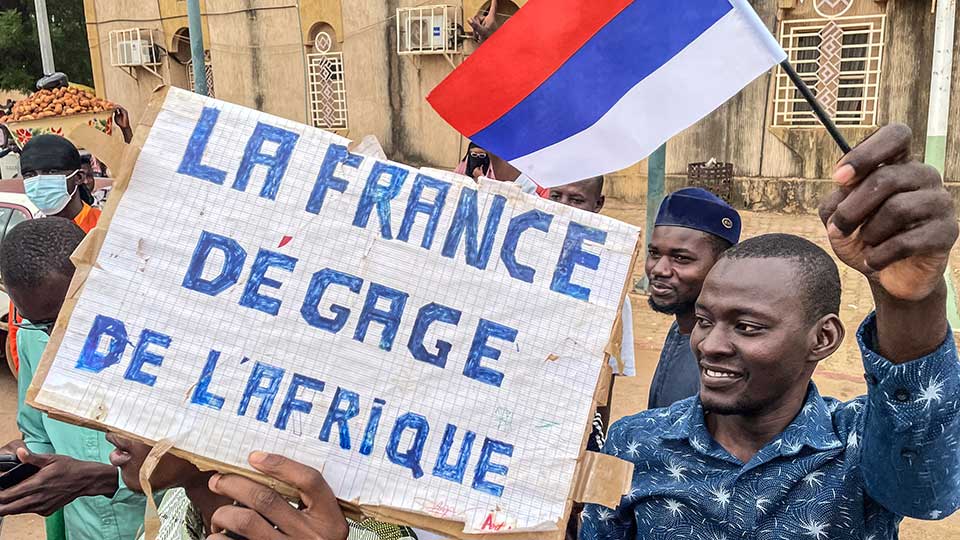
By Lukas Fiala
The recent military coup in Niger was widely interpreted as the latest blow in a series of setbacks for Europe in Africa. After French disengagement yielded space to Russian mercenaries across the Sahel, it’s hard not to see the coup as yet another reminder of Europe’s waning influence across the region.
Whether true or not, the symbolism could hardly be stronger. In an era in which major European capitals are rethinking their security strategies in light of Russia’s war in Ukraine and deteriorating relations with Beijing, events of the last months reveal the need for a reality check among European policymakers.
Take recent UK and German security strategies as an example. Both the UK’s Integrated Review Refresh (IRR) and Germany’s National Security and China Strategies assess the challenges brought about by a world moving towards multipolarity. There are, of course differences across these strategies, with Germany’s emphasizing EU coordination and the UK’s painting the picture of a more independent, global role for Britain post-Brexit.
But at the same time, China and Russia – and their varying relationships with sub-regions of the Global South – have been an obvious shared motivation for the drafting of these documents.
Both approaches are laudable efforts in recognizing the need for longer-term strategic efforts across the Indo-Pacific and other regions to present a credible alternative in an era of strategic competition. And yet, they also reveal two enduring challenges in the way London and Berlin view global affairs.
The first is a capability-expectations gap in what Europe can actually get done to meaningfully shape “the global strategic environment,” as the UK’s IRR demands. It’s noteworthy, for instance, that Germany’s China Strategy proclaims Berlin’s intention to “protect global public goods in the Indo-Pacific in the long term.”
But without significant support from Washington and regional allies, this will hardly be feasible. To put efforts into perspective, the UK’s IRR has already declared the country’s Indo-Pacific tilt completed after the deployment of “a UK Carrier Strike Group and two offshore patrol vessels to the region.”
The second challenge is institutional and relates to groupthink among European policymakers. All too often, ideological assessments of what the world ought to look like are clouding realistic analysis and preventing us from asking the right questions in the first place.
Germany’s China Strategy, for instance, calls strongly for upholding the “rules-based liberal order” but fails to present a critical understanding of what this means for governments across the developing world that are ultimately the ones that Berlin must convince to buy into European ideas for global governance.
It would surely be beneficial to reinvigorate multilateralism through the UN and WTO, as the strategy suggests. But with more than 40 countries expressing interest in joining the BRICS and countries across the Middle East and North Africa eyeing closer ties with the Shanghai Cooperation Organisation (SCO), such ambitions will have to be couched in a realistic understanding of just how quickly the global governance landscape is evolving. While the SCO and BRICS are, of course, not fully fledged alliance frameworks, they do signal widespread dissent with Western-led liberal order among many Global South governments.
Whether we like it or not, to remain relevant in an era of multipolarity, European capitals will have to develop a better understanding of the unfolding global political changes and China’s role therein.
Lukas Fiala is the project head of China Foresight at LSEIDEAS.
